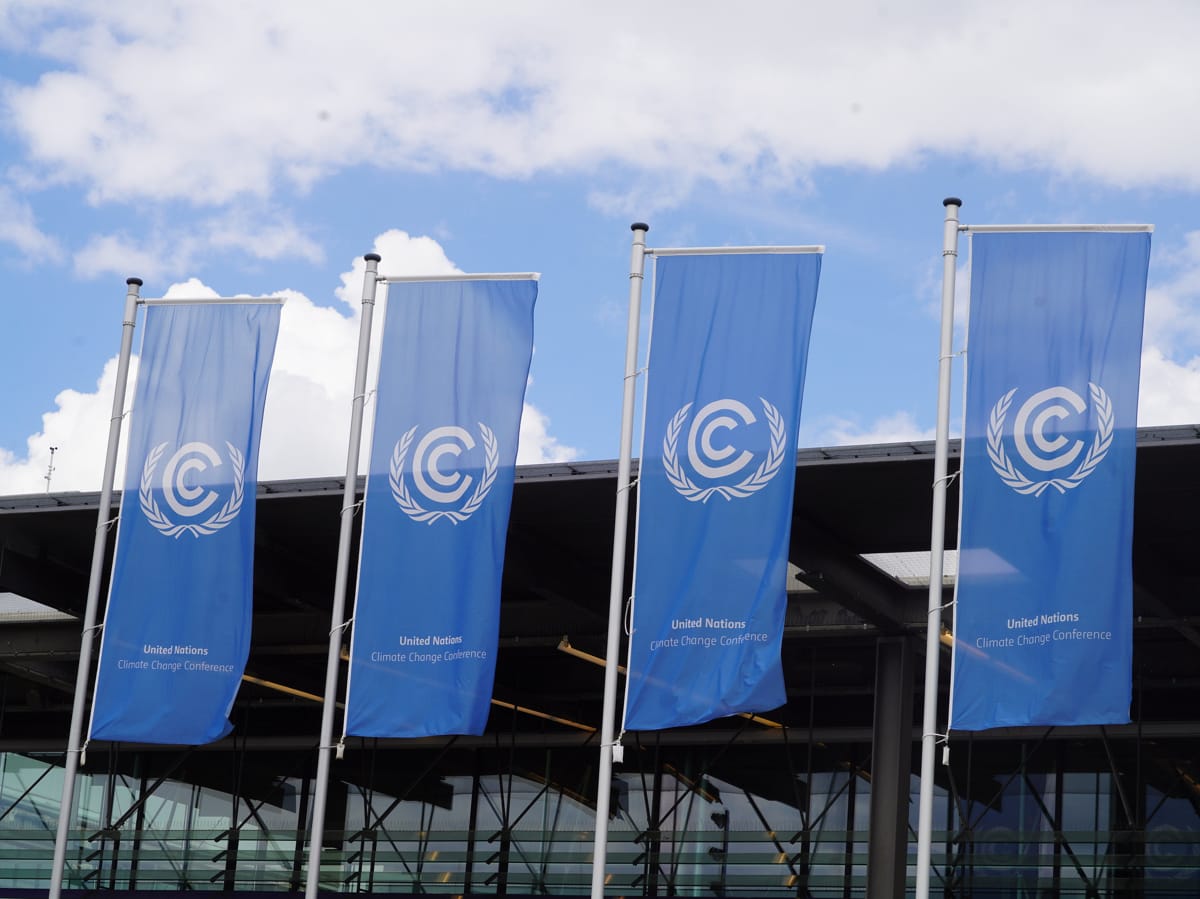As Donald Trump’s victory reverberates around the world, those working on climate change will be among the first to feel the bite of the former president’s return.
Over the next two weeks, the UN’s annual climate summit, known as COP29, will be held in Baku, Azerbaijan.
The US delegation to COP29 will be led by John Podesta, President Joe Biden’s envoy for climate. Podesta and his team will continue to represent Biden’s policy stance until January, even while Trump is preparing to dramatically reduce US ambition, leadership, and action on climate change at home and abroad.
Trump, an ardent climate sceptic, has pledged to again withdraw the United States from the 2015 Paris Agreement – the global treaty at the heart of efforts to avert further dangerous climate change by keeping global warming below 1.5°C.
Conservative lobbyists are pushing Trump to go further this time, by withdrawing the United States from the overarching UN Framework Convention on Climate Change – a move which would see the United States not only rescind its commitments under Paris, but vacate global climate negotiations altogether.
Many countries will continue to pursue their climate targets, irrespective of US inaction.
Trump’s victory, putting him in charge of the second-highest carbon emitting economy after China, all but assures that the world will surpass the 1.5°C warming limit. Without deep US emission cuts at home, the gap between 1.5°C and reality will only grow wider. But Trump has indicated he will remove US regulations on emissions-intensive industry, ramp up fossil fuel exploitation (promising to “drill, baby, drill”), and dismantle a range of federal energy transition programs, including Biden’s signature climate policy, the Inflation Reduction Act. One projection estimates that this could add 4 billion tonnes of emissions by 2030 compared to Biden’s plans – the equivalent of double all the savings from wind, solar and other clean technologies around the world for the past five years.
As the world’s largest economy and biggest historical contributor to global warming, US leadership – or lack of it – also has a strong demonstration effect for the rest of the world. For example, in 2021, US pressure was a crucial ingredient in Australia and Japan committing to more ambitious emissions targets.
By contrast, lower ambition in the United States emboldens climate sceptical politicians the world over, some of whom may see an opportunity to roll back existing commitments.

Under Trump, a key source of pressure on other major emitters including China and India will evaporate, right before countries are expected to pledge stronger 2035 emissions reduction targets at next year’s COP in Brazil.
US cooperation with other major players will slow or grind to a halt. Such engagement has been crucial in building confidence in the UN process and catalysing broader cooperation. For instance, the joint statement by Barack Obama and Xi Jinping in 2014 was an important precursor to the Paris Agreement, signalling the strong commitment of the world’s two largest emitters. And even though strategic competition with China has been a key feature of Biden’s presidency, the Sunnylands Statement in November last year signalled Biden and Xi’s shared intent to address the climate crisis.
Trump’s return will also play into a long running source of tension in UN climate negotiations. Put simply, the UN process reflects an underlying compact: poorer countries agree to reduce their emissions, so long as richer countries take the lead, and provide finance, technology and assistance to help them do it. COP29 is slated to agree a new global financing goal to enable developing countries to mitigate and adapt to climate change.
But with the next US president patently opposed to paying other countries for anything, let alone climate action, the United States is doomed to fall far short of what developing countries might deem fair. If COP29 fails to agree on a strong financing goal, the grand bargain of climate negotiations begins to falter, with potential knock-on effects for developing country ambition at next year’s mitigation COP.
Taken together, that’s a pretty grim picture.
But the world need not be fatalistic.
Not all of Biden’s policies are likely to be rolled back, either.
The shift to the net zero economy is taking place on a longer timeframe, and on a larger scale, than a four-year presidential term, as my former Lowy Institute colleague Michelle Lyons has argued.
Policy disruption in the United States may slow the pace of investment, but the economics of climate change will continue to shift towards net zero, with renewables now the cheapest source of energy, the costs of inaction continuing to rise, and many countries now seeing more opportunity than risk in the clean energy economy.
As a result, many countries will continue to pursue their climate targets, irrespective of US inaction. And even within the United States, subnational initiatives by businesses and state governments may counterbalance some of the Trump administration’s damage.
Not all of Biden’s policies are likely to be rolled back, either. Trump may have promised to gut Biden’s Inflation Reduction Act, which he has labelled a scam. But in an effort to Trump-proof the initiative, significant disbursements of clean energy incentives have already been made.
Trump’s return is undoubtedly a blow to the UN climate process. But the international community at Baku has a choice to make. It can resign itself to despair and use Trump’s return as an excuse to lower ambition. Or it can continue along the responsible path – to press ahead with a transition that will safeguard the wellbeing and prosperity of the world.

